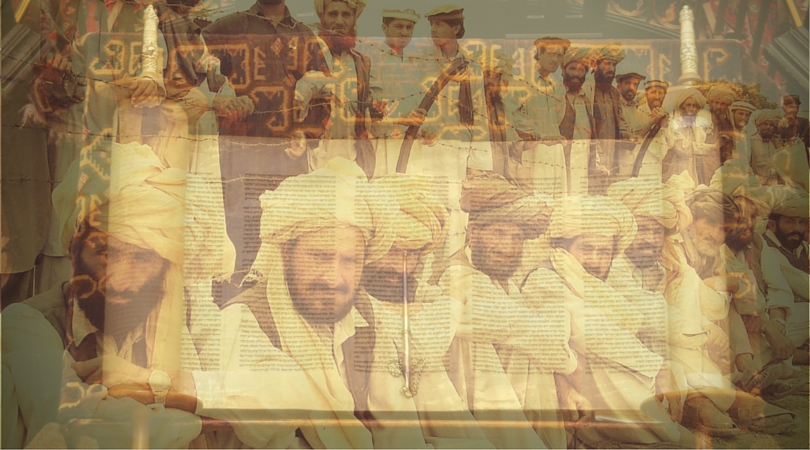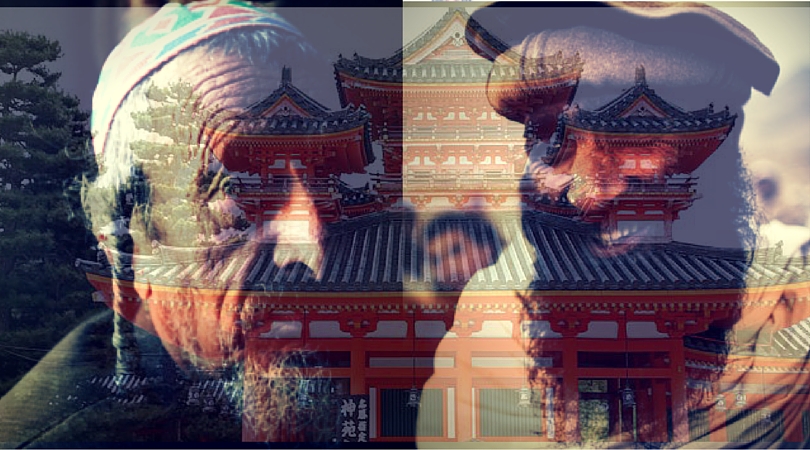The Pashtuns, who live in Afghanistan, Pakistan and India, have a very special tradition, which says they are Bene Israel, and is widely spread among some of the Pashtun tribes. In this article we intend to prove beyond a reasonable doubt that this tradition is true, and they are in fact the descendants of the 10 tribes of Israel, who were taken to Afghanistan thousands of years ago.
The fact is that some Pashtun tribes have a tradition of being the people of Israel (Bene Israel), meaning they descended from our father Yaakov. It is even told that the Afghan king once asked the Afghan Jews from which tribe they are, when they answered they don’t know the king said that the Pashtuns do, and that the king is from the tribe of Benyamin. In particular, I heard myself from Pashtuns from the tribes of Lewani, Benyamin, Afridi, Shinwari and more, that their grandfathers told them they are Bene Israel, and it is well known that this tradition is spread through most (or all) of the Pashtuns tribes.
Some Pashtuns, especially from young generations, are doubting that this is true. In this article I’ll explore the possibilities of how this tradition could have originated. From this exploration it will become clear that doubting the truthfulness of this tradition is irrational. I would also outline some common traditions of Pashtuns and Jews, some of them are based on the Torah, which further confirm that this tradition is true and that Pashtuns are really Bene Israel. I’ll then say a few words about DNA testing and finally talk about the implications of this tradition.
The possibilities for the origin of the tradition
There are 2 possibilities for how this tradition could have originated. The simple one is that it is true. The more complex one is that it is false. If it is false, it had to originate somehow. There are 3 possible ways this tradition could have originated if it is false:
- At some point in time someone forced the Pashtuns into believing they are Bene Israel.
- At some point in time someone convinced the Pashtuns into believing they are Bene Israel.
- At some point in time some Pashtuns created this tradition in a major conspiracy.
Anyone who has doubts in this tradition must explain how it originated. We will now go through those possible explanations (assuming the tradition is false) and show that each of them is far-fetched and as close to impossible as it gets.
Someone forced the Pashtuns into believing in this tradition
According to this explanation for the origin of this tradition, at some generation A, someone (or a group of people) came along and threatened the Pashtuns that if they won’t teach their children they are Bene Israel, something terrible is going to happen to them. Time had passed, and at generation B the tradition was already so acceptable, that not only many (probably most) of the Pashtuns believed it, but they completely forgot that once, at generation A, someone forced their ancestors into believing it (it is a fact that now no one remember of such a person who forced the Pashtuns into believing in this tradition).
For this explanation to be rationally accepted, we have to believe that:
- Someone had a motive for forcing the Pashtuns into believing they are Bene Israel.
- That person had the means to force generation A into believing it.
- In some of the generations that followed generation A, there had to be someone who shared this motive and those means, or else, after 1-2 generations this tradition would have been recognized as false and it would have disappeared.
I think that it is safe to say that we have no rational reason for believing that any of those conditions is true, because:
(1) It doesn’t seem reasonable to believe that anyone had ever had a motive for forcing the Pashtuns into believing they are Bene Israel.
(2) In addition, we clearly see today that Pashtuns would not let go of their traditions without a fight, and we have no reason to think it was different in any previous generation. Therefore, even if anyone had the motive, he would probably have to kill many Pashtuns before he could force this tradition upon them. If that happened, it would have been remembered, both by the Pashtuns themselves and by their neighbours, and there would have been some archaeological and historical records of this genocide. As far as I know, there isn’t any such evidence.
(3) Finally, if believing it was possible at one generation is far-fetched, believing some people did that for many generations is close to insanity.
(4) Even if we ignore the problems outlined above, it would still be highly unlikely that this event of forcing this tradition upon the Pashtuns would have been forgotten.
Therefore, the belief that Pashtuns are not really Bene Israel cannot be rationally based on this explanation.
Someone convinced the Pashtuns into believing in this tradition
According to this explanation for the origin of this tradition, at some generation A, someone (or a group of people) came along and convinced the Pashtuns that they are really Bene Israel, although they never heard of it before. Time had passed, and at generation B the tradition was already so acceptable, that not only many (probably most) of the Pashtuns believed it, but they completely forgot that once, at generation A, someone invented it and convinced their ancestors it is true.
For this explanation to be rationally accepted, we have to believe that:
- Someone had a motive for convincing the Pashtuns into believing they are Bene Israel.
- That person had such strong arguments that he managed to convince people they are something they are not.
- In some of the generations that followed generation A, people who questioned this tradition were convinced again and again that it is true using those arguments.
- The Pashtuns at generation A had to have no tradition of their true origin, or they let go of their previously held tradition because the arguments they are Bene Israel were so strong.
I think that it is safe to say that we have no rational reason for believing that any of those conditions is true, because:
(1) Like we said before, it doesn’t seem reasonable to believe that anyone had ever had a motive for convincing the Pashtuns into believing they are Bene Israel.
(2) What could have been those arguments? If we ignore the tradition the Pashtuns are Bene Israel, even with the other common traditions of Pashtuns and Jews, there aren’t strong enough arguments to convince anyone, especially not the Pashtuns themselves, that the Pashtuns are something they are not (remember that at generation A the Pashtuns didn’t have any tradition of being Bene Israel according to this explanation).
(3) Even though some people are stupid, there are always, in every nation, those who are smart and ask questions. If enough people, at generation A or at the following generations, were smart, there’s no way this tradition would have been accepted, and I don’t think it is rational to believe that some generations of Pashtuns were so stupid. In fact, a lot of Pashtuns are very intelligent people, and from that we can safely conclude that their ancestors were intelligent too.
(4) There’s no historical record for this event of convincing the Pashtuns they are something they are not.
(5) It is unlikely that the Pashtuns in generation A let go of a previously held tradition, no matter what arguments were given to them. We’d have to believe they had no idea who they are.
(6) Even if we ignore the problems outlined above, it would still be highly unlikely that this event of convincing this tradition upon the Pashtuns would have been forgotten.
Therefore, the belief that Pashtuns are not really Bene Israel cannot be rationally based on this explanation.
Some Pashtuns created this tradition
According to this explanation for the origin of this tradition, at some generation A, some Pashtuns decided they are Bene Israel. Then they convinced or forced the other Pashtuns, although no one has ever heard of it before. Time had passed, and at generation B the tradition was already so acceptable, that not only many (probably most) of the Pashtuns believed it, but they completely forgot that once, at generation A, some Pashtuns invented it and convinced or forced others it is true.
The same arguments that were given above are all relevant to this explanation, only now the problems are much more profound, because we have to believe that the ones who forced or convinced other Pashtuns were Pashtuns themselves (and if it was done by convincing, they had to be superb liars).
Therefore, the belief that Pashtuns are not really Bene Israel cannot be rationally based on this explanation.
Conclusion
We previously outlined taxonomy of all the possible explanations for the origin of the tradition that Pashtuns are Bene Israel, assuming it is false. Because all of the explanations are irrational, we must conclude that the tradition is true, and at some generation A the Pashtuns really lived in the land of Israel and knew for a fact they are Bene Israel. They were then taken to Afghanistan and the area around it (according to the bible, they were taken by the Assyrians), where they lived and passed this tradition from generation to generation.
Common traditions of Pashtuns and Jews
Although the common traditions of Pashtuns and Jews might not be enough on their own to prove Pashtuns are Israelis, they can certainly be used for further confirmation that our conclusion is correct. Amongst the common traditions are:
Lighting candles before Saturday (Shabbat):
Not eating sea-creatures such as lobsters, shrimps, and crabs, and animals like camels and horses, and meat with cheese. These are, in fact, not Kosher (cannot be eaten) according to the Torah given to the people of Israel by God through Moses.
Circumcision on the 8th day:
The days of the week are called by their numbers, like in Hebrew, except for Friday which is called by its Arabic name Jummah جمعه (it is a holy day for Muslims) and Saturday which is called Shambah, in the Torah (and in Hebrew) it is called Shabbat (Shabath).
Wearing a small hat, In Hebrew they are called Kipa:

Wearing a square piece of clothing by men. In Hebrew it is called Talith. In Pashtun, it is Shawl/Sadaar:

A man marries his dead brother’s widow if the brother didn’t have children. In the Torah it is called Yibum.
In Weddings there’s a piece of fabric hanging above the marrying couple. In Hebrew it is called Hupa. In Pashto it is called Dolaye,
In some Pashtuns weddings, the bride breaks a glass (in particular, I heard it is done by Pashtuns in Kandahar). In Jew’s weddings the groom breaks it. This is actually a relatively new tradition that Jews do for the remembrance of the destroyed Temple, so it is likely that Pashtuns heard of this tradition after they have already been exiled and added it to their other Israeli traditions.
Some Pashtun women grow side brows (called Kamsai in Pashto). A lot of Jewish males do that too (mainly Hasidim (Ashkenazi) and Yemen Jews). Jews and Pashtuns are probably the only ones in the world who do this:

Using names like Yaakov (Christians use Jacob but only Jews and Pashtuns use it as it should be pronounced), Israel, Barak, Asaf, Benyamin, Kenan, Tamir, Timor, Shir, Sahar, etc.
Other evidence includes names of places in Afghanistan and Kashmir that resemble ancient towns in Israel that are mentioned in the bible. And some say that until not so long ago, one of the names of the Amu Darya (River Oxus) was Gozan, which is mentioned as one of the placed the damn Assyrians exiled the people of Israel to. There are also the names of tribes that resemble the children of Yaakov (the names of the Israeli tribes), like Lewani (Lewi), Daftali (Naftali), Yusufzai (children of Yussuf-Yossef), Rubanni (Reuven), Afridi (Efrayim) etc. Also parts of the Pashtunwali resemble some parts of the Torah.
Some Pashtuns also have Jewish artifacts. For example, I heard first hand from a Lewani Pashtun that his grandmother had these jewelries:

If we add those traditions to what we said above, we can be confident that our conclusion is correct.
DNA Testing
Here it is said that almost half of Indian Afridi Pathans are very close genetically to Jews. I heard from some Pashtuns that Pathans are actually Pashtuns that mixed with other nations, so I was set to try to do a DNA test myself on friends of mine who are pure-blood Pashtuns. I already got an offer from a commercial company, when I suddenly remembered something I read not long ago – a Wikipedia article about Jewish genetics. I’ll outline some of the conclusions of those studies, and explain their relevancy afterwards.
Male linage studies: A book published in 2012 that surveys previous studies concluded that all major Jewish groups share a common Middle Eastern origin, and claimed that the theory that some Ashekenazi Jews are Khazars is refuted. Another study done in 2012 claimed to prove that North African Jews are genetically close to European Jews. Another showed that Ashkenazi Jews from Germany are much closer to Sfaradic Jews than to non-Jewish Germans. Another study in 2013 found no Khazar evidence for Ashkenazi Jews and again concluded that most of the Ashkenazi Jews have common Middle Eastern origin as the Sfaradic Jews.
Female linage studies: In 2008 someone found that about 40% of Ashkenazi Jews had 4 female founders (consistent with Jewish tradition of being the children of Yaakov’s wives – Lea, Rahel, Zilpa and Bilha), but that the same is not true for Sfaradic Jews (basically claiming that many women converted to Judaism and married male Jews). In 2013 someone said the exact opposite – that about 88% of the Ashkenazi Jews had non-Middle Eastern female ancestors, suggesting that Jewish males migrated to Europe and took new wives from the local population, and converted them to Judaism. In 2014 another study contradicted both other studies.
Other studies: Looking at the whole genome, one study concluded that most Jews from all communities are descendants of ancient Hebrew and Israelite residents of the Levant. Some studies concluded that some Ashkenazi Jews are in fact descendants of Khazars. There are many other studies; many of them contradict each other.
Now to our point, we clearly see that most studies are consistent with the Jewish tradition of being mostly children of Yaakov (except for non-Israelis who accepted the Israeli religion). But, and this is a huge but, some studies (especially in the maternal case) show something completely different.
One explanation for the inconclusiveness of the DNA testing of Jews, especially in the maternal linage (which is the more important one, because according to the Torah (implicit) and Ezra (explicit) being Israeli is determined by the mother), is that a lot of women around the world converted to Judaism, but it wouldn’t be a full explanation of the facts, because we would then expect that all studies would show this or that percent of non-Middle Eastern maternal origin.
A better explanation is that DNA testing is over-hyped, and it will take some more development until we could rely on it. Commercial companies and researchers would surely disagree, but they have a personal interest.
Because we showed that it is basically impossible to believe that Pashtuns are not Bene Israel, DNA is not necessary for proving this tradition. It can only be used for proving another Pashtuns tradition – that Pashtuns did not mix with other people, but I personally think that given the current knowledge of DNA and mutation frequency, and how much the environment affects it, any result of a DNA test could be debated.
Pashto
Some Pashtuns think that because Pashto is not a Semetic language it means Pashtuns are not Semetic, but it isn’t a strong enough evidence to contradict what we said above. To contradict what we said one has to explain how this tradition originated, and it is impossible.
Anyway, we should say that not only this evidence is not strong enough; it is actually not evidence at all. Jews in Europe spoke 3 languages – Hebrew, the language of their country (French in France, German in Germany etc) and Yidish. Yidish has only a few Semetic elements and is closer to German, and was used for daily communication between Jews in Europe. Jews in Spain and Portugal also spoke 3 languages – Hebrew, Spanish and Ladino. Ladino was the Yidish of the Jews in Spain and Portugal. In Arabic countries, again, the Jews spoke 3 languages – Hebrew, Arabic and Judeo-Arabic. The later was the Yidish of Jews in Arabic countries.
It is true that the Pashtuns do not speak Hebrew, but I think it is highly probable that Pashto is the Yidish of Pashtuns. It is also possible that Pashtuns didn’t need another foreign language (like Jews needed to know German or Spanish) because unlike Jews, Pashtuns had their own territory. It might be just a wild theory, but it might have been used, like Yidish, so that Pashtuns won’t mix with other nations.
Other nations who claim they are Bene Israel
From the same reasons outlined above, I believe every nation that has a wide-spread tradition of being Bene Israel, are really descendent of Bene Israel. That said, being Bene Israel and having our father Yaakov as an ancestor is not the same thing. There are 2 types of nations who are Bene Israel:
- People who kept the religion of Moses and Israel (what is called now Judaism) all along. They are Bene Israel because non-Israelis who married them, accepted the religion too, and Moses taught Bene Israel that if someone accepts that religion and goes through a certain process (called Giyur in Hebrew), he becomes an Israeli himself (Moses’ own wife, Sipora, was actually a convert).
- People who are descendents of Bene Israel who didn’t keep the religion of Moses and Israel, but didn’t mix with other people.
The faces of all the people who claim they are Bene Israel prove they mixed, and they generally do not deny that they mixed. Jews mixed too, but they kept Judaism, so they fall in to the first category (Jews who married non-Jews were thrown out of the Jewish community and were considered dead to them. This is still true for today’s religious Jews, and until not long ago, all Jews were religious). On the other hand, those other people who both mixed and did not keep Judaism, although they are descendants of Bene Israel to some extent, they are not Bene Israel themselves, as they do not fall into either category.
What’s special about the Pashtuns is that although Pashtuns do not keep Judaism today (except for some small portions like not eating some non-kosher animals), according to Pashtuns’ tradition, they did not mix. And unlike other nations who have the tradition of being descendants of Bene Israel, the face of the Pashtuns prove they did not mix.
So the question is whether one believes the tradition that Pashtuns didn’t mix with other nations or doesn’t. It is less provable than the tradition of being Bene Israel, because if Pashtuns did mix and stopped mixing at some generation A, it is possible that the tradition of not mixing was created at a later generation B, if they didn’t mix for enough generations.
That said, I think it is more likely that they didn’t mix than that they did. One reason is because the current situation is that most Pashtuns are not mixing. Another reason is that I can’t find a good reason why at some generation A they’d stop mixing after they mixed before that. And finally, we know from Moses (Deuteronomy 30), from Yehezkel (37), from Yirmiya (31), Yishaaya (51, 27), and from many other prophecies that the Bene Israel are out there (those who were exiled by the damn Assyrian). Because we know they don’t keep Judaism, the only possibility for them to exist as Israelis is by not mixing, and there is one, and only one, nation that fits those conditions, and it is the Pashtuns.
I should note that if some of the Pashtun tribes are descendants of Bene Israel and others aren’t, and the Pashtuns mixed within themselves, that would exclude Pashtuns from category 2. Yet, as far as I know, mixing even between tribes is rare (or at least was rare until recently). So I guess that if you are a Pashtun and the elders of your tribe say you are Bene Israel and that your tribe’s ancestors didn’t mix with tribes that aren’t Bene Israel, then you are Israeli. Otherwise, there might be some doubts in case some tribes (those that don’t have this tradition) weren’t original Pashtuns but adopted the Pashtuns’ culture at some point in history.
Implications
Well, as a Jew who prayed for and dreamt of meeting the other (non Jews) Bene Israel, I am extremely excited. If you are a Pashtun and you don’t want to admit being an Israeli, I think you are not being rational.
First, being Israelis is a source of pride. It means you are the children of Prophet Yaakov. It means you were the first to believe in the one and only God, more that 1500 years before the Arabs. Your ancestors prayed to the one and only God while the Arabs were complete pagans, bowing to all sorts of idols who don’t have power over anything. It is also very likely that other prophets are your forefathers. For example, it is very likely you are descendants of Prophet Moses himself if you are Lewani. Your great great… great grandfather might have been Moses’ best student – prophet Yehoshua if you are Afridi, etc. Your ancestors saw with their eyes what God did to Egypt – stuff that no other nation but the Egyptians themselves have witnessed. They heard God talking to them on Mount Sinai, etc.
Second, If you think Israel or Jews are some kind of evil maniacs, then you should read this. Once you learn the truth you could be happier with being from the same nation as the Jews. In that article you can also find out why Jews are so excited to realize the Pashtuns are Bene Israel.
So if you are a Pashtun and you are comfortable with the fact that we are you and you are us, you are invited to our facebook group – The People of Israel – Pashtuns and Jews. If you are a Jew and you are excited you are welcome too of course. 
Side note for Jews
Some Jews might doubt the un-provable (given current genetics science) tradition of Pashtuns not mixing. I would like to prove to them that our Rabbis of the Mishna and Talmud knew that they won’t mix. First of all, there are many prophecies that the 10 tribes are going to return to the holy land (like Yehezkel 37, Yirmiya 31, Yishaaya 51 and 27, and many others, that talk about the 10 tribes specifically).
Second, if a non-Israeli marries an Israeli woman, they are not really married according to Halacha (Jewish law), but if he is Israeli from the 10 tribes, then they are really married and she must get divorced according to Halacha if she wants to marry an Israeli. On this topic, the Talmud says in Yevamot 16: “If a non-Jew married an Israeli woman according to Halacha, we are concerned that they might actually be married, because he might be from the 10 tribes”. The Talmud then asks: “But when someone is in front of us and we don’t know who he is, we assume he came from the majority of people, and the majority of people are not from the 10 tribes, so we shouldn’t be concerned”. The Talmud then says that this is only true in their land – the land where the 10 tribes live, because over there they are the majority. So the Talmud believes that the 10 tribes are still the majority in their land. If they had mixed this would not have been the case, unless there was only a little mixing going on.
Finally, we have the Mishna in Sanhedrin 10:3, where Rabbi Akiva said the 10 tribes don’t have a part in the next world, while Rabbi Eliezer said they have. Rashi simply said that they talked about the generation that was exiled, but even Rabb Akiva admits that their descendants surely have a part in the next world. There’s no doubt this is the case, otherwise Ribbie Akiva would be in a disagreement with Yehezkel, Yishaaya and Jeremaya, and we know he can’t be.
So the prophets and the Talmud all say that the 10 tribes are out there, in their land they are the majority, and they are still Israelis, even after all these years. There’s one, and only one, nation that doesn’t look like they mixed, has Torah-based traditions, has a tradition of being Bene Israel, and even has a tradition of not mixing. They are the Pashtuns, our brothers, Bene Israel.
So a Jew who believes in the prophets and that our Talmud’s Rabbies knew what they were talking about shouldn’t doubt the tradition of the Pashtuns not mixing with other nations. And I’m not a Rav myself, but I think there might be a consequence for Halacha here – if we meet a random Pashtun, we can’t ask him to do something that is forbidden on Shabbat, serve him anything not Kosher (from the non-Kosher stuff they do eat – some of the Kosher laws the Pashtuns do keep), etc, because as the Talmud said, in their land they are the majority.
The author originally published this piece on the Pashtun Times

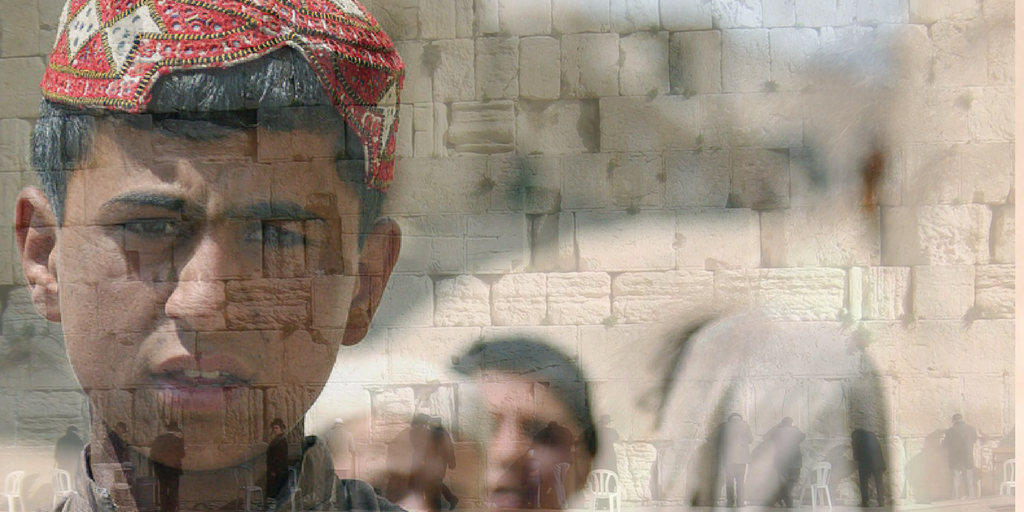

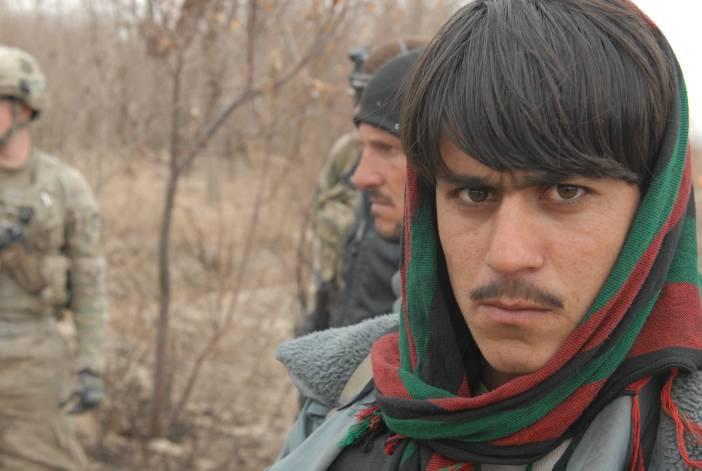

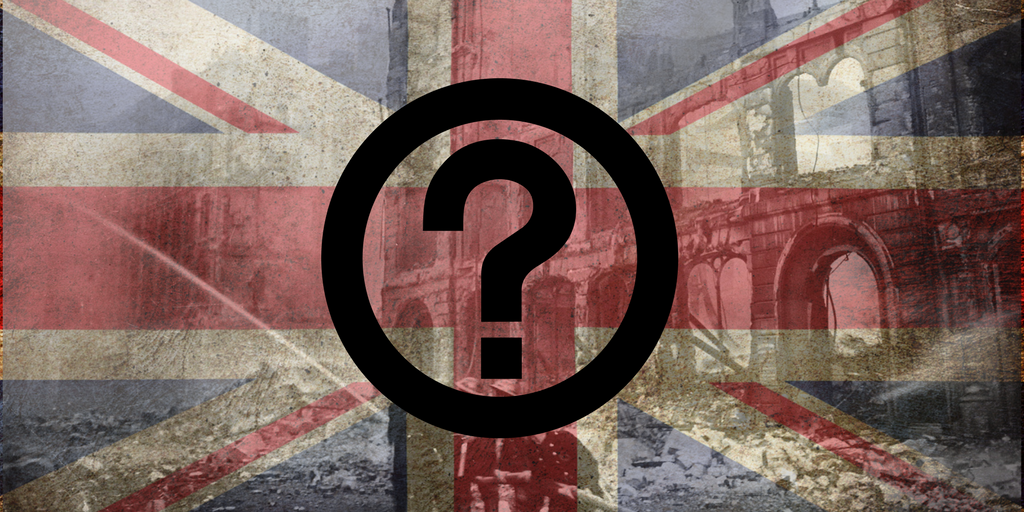




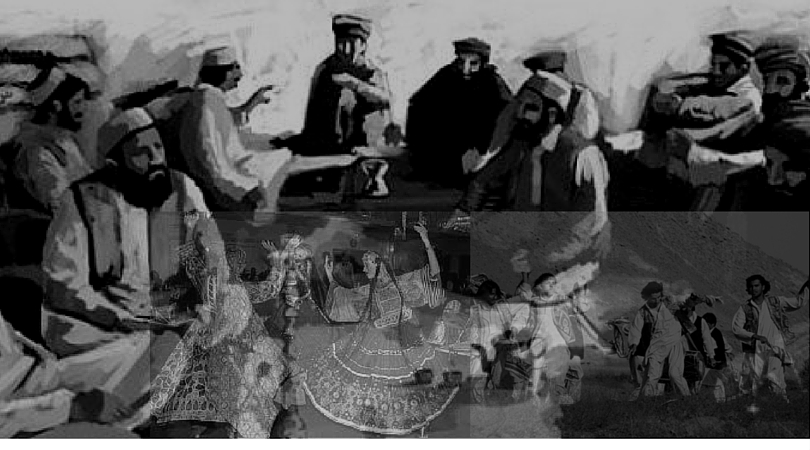




 Expressing love for the land of Pashtunkhwa, Ahmad Shah Abdali, the founding father of the modern state of Afghanistan, spoke in his poetry in 1760, “I forget my Delhi throne when I recall the mountain peaks of my beautiful Pashtunkhwa. If I conquer the whole world, even then I can never forget thy beautiful gardens.”
Expressing love for the land of Pashtunkhwa, Ahmad Shah Abdali, the founding father of the modern state of Afghanistan, spoke in his poetry in 1760, “I forget my Delhi throne when I recall the mountain peaks of my beautiful Pashtunkhwa. If I conquer the whole world, even then I can never forget thy beautiful gardens.”


